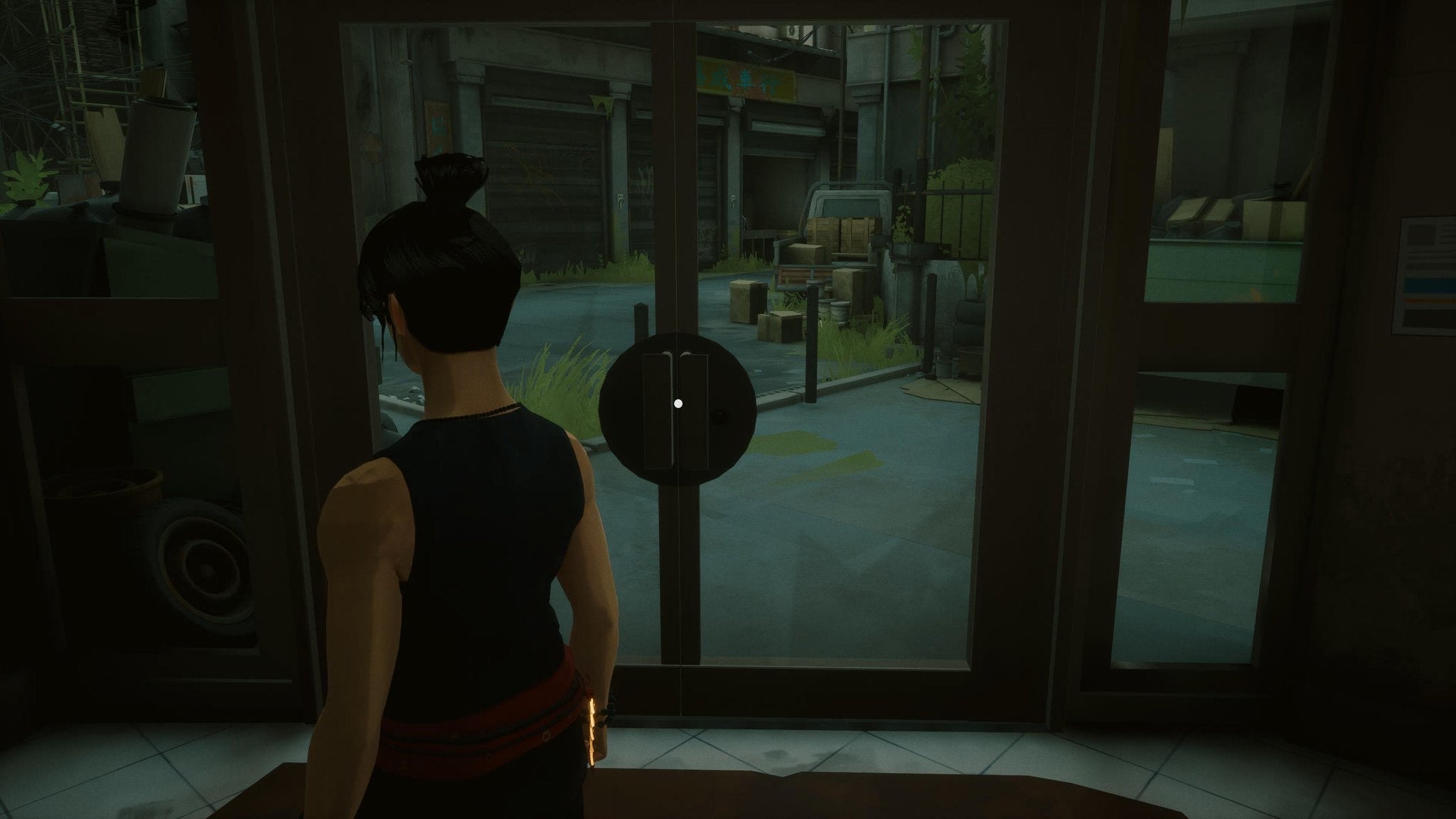The Squats Board – Sifu Guide

There are multiple collectible pieces of intelligence available throughout The Squats. Some will be locked until you complete levels further into the game, but
Sifu: How To Unlock The Squats’ Private Room Door
Here’s how to solve one of Sifu’s first mysteries.
Original Article: By George Foster
https://www.thegamer.com/sifu-greenhouse-door-unlock/
Our Social Media:
Facebook: https://www.facebook.com/thegamercom/
Twitter: https://twitter.com/thegamerwebsite
Instagram: https://www.instagram.com/thegamerweb/
For more videos and articles visit:
https://www.thegamer.com/
For copyright matters please contact us at: [email protected]
Sifu Level One Locked Door | Sifu The Squats Locked Door | Sifu Guide
Sifu Level One Locked Door | Sifu The Squats Locked Door | Sifu Guide
#sifu #sifugameplay #sifunodathchallenge #sifugirlgameplay
In a city in China, a group of five martial artists consisting of Fajar “The Botanist”, Sean “The Fighter”, Kuroki “The Artist”, Jinfeng “The CEO”, and Yang “The Leader” attack a martial arts school, massacring all of the students. Yang then confronts the school’s sifu and demands he hand over the knowledge he seeks, revealing himself as a former student. The sifu resists and is killed by Yang, who subsequently finds the sifu’s child and orders Fajar to kill them. However, the child is revived thanks to a magical talisman, though its power is limited as every time it is used, the user will suffer accelerated aging.
Eight years after the attack on the school, and the child has become an accomplished Martial Artist, training him or herself to take revenge on Yang and his subordinates. The Martial Artist tracks them all down one by one, killing them after their duels (though it is possible to spare them on subsequent playthroughs). Eventually, the Martial Artist confronts Yang himself, who reveals he was originally banished from the school for attempting to use the Talisman to save his wife and daughter, which motivated him to kill his sifu in revenge. The Martial Artist and Yang then battle, with the Martial Artist eventually becoming the victor.
If the Martial Artist killed any of the targets, it is implied that they failed to follow the teachings of “Wude” and are revived back to their original starting point eight years in the past.
If the Martial Artist spared all of the targets, they eventually succumb to their wounds inflicted by Yang and die, but by following the teachings of “Wude”, they achieve enlightenment. A post-credits scene then shows a sifu tending to their students with the Talisman in their possession, implying the Martial Artist has somehow survived, presumably revived by Yang as thanks for sparing him and to seek redemption for his sins.
Gameplay
Sifu is a beat ’em up action-adventure game played from a third-person perspective. The game, which is inspired by Pak Mei kung fu, includes over 150 unique attacks. Basic attack moves can be chained together, though some combos may grant players additional tactical opportunities, such as being able to knock down enemies or stun them. The protagonist and all hostile enemy characters have a “structural gauge”. When the gauge is completely filled, the guard of these characters will break and they will become vulnerable to finishing attacks. Players can also block strikes, though this will gradually fill their gauge. Alternatively, players can also evade attacks or parry when an enemy is about to land a blow. A successful parry allows the player to stun the enemy or throw them toward a particular direction. The game allows players to take advantage of the environment and improvise new attacks or alter their strategy when facing a stronger opponent. For instance, the player may kick an enemy off a ledge, or utilize various objects as makeshift weapons. The last enemy in a combat section may sometimes enter a state of uncontrolled frenzy, essentially becoming a miniboss.[2] Occasionally, the player may be presented with dialogue options, which can enable them to potentially avoid combat altogether depending on their choice of words.[3]
When the player dies in the game, they are magically resurrected at the spot where they die and age several years. As the player character ages, their strikes will be more powerful, but they will have less health. Players will encounter shrines, which will be the place where they heal and unlock new skills. They can also visit the “wuguan”, a kung fu school, to practice their skills in between levels.[2] Abilities are lost when the player character dies, though it is possible to permanently unlock upgrades so that they are available at the beginning of each run.[4] As the player completes multiple runs, they can access the “detective board”, where the information collected across different runs will be stored, and secret areas and shortcuts may open up.[2]
The game is developed by Sloclap, who previously released their debut fighting game Absolver in 2017. Unlike Absolver, Sifu does not have multiplayer as the team wanted to focus on developing the gameplay and need not to spend time developing the infrastructure necessary for online games. The game was inspired by kung fu movies starring Jackie Chan, where Chan was shown defeating multiple enemies single-handedly. The term “sifu” (Chinese characters 師父) refers to “master” in Cantonese, and the combat style featured in the game is based on the Bak Mei style. The team consulted Benjamin Colussi, a Bak Mei kung fu master to ensure that the game was authentic. The game emphasizes “mastery through practice”, a key value of kung fu which is reflected through the aging system.
Sifu The Squats Complete Detective Board Guide
A guide that will show you how to complete the Detective Board in The Squats level in Sifu
The Squats: 0:00
Fajar – The Botanist: 0:05
Gangsters: 0:17
Skull Letter: 0:47
Avenue Door: 1:03
Addicts: 1:09
Purple Mist: 1:29
Juggernaut: 1:40
Bills: 2:18
Club Flyer: 2:28
Metal Gate: 2:42
Bunch of Keys: 2:56
Skull Brothers: 3:08
Purple Flower: 3:13
Keycard 206: 3:25
Private Room Door: 3:36
Hongboa: 3:48
Outro Music: « Dreams » from Bensound.com